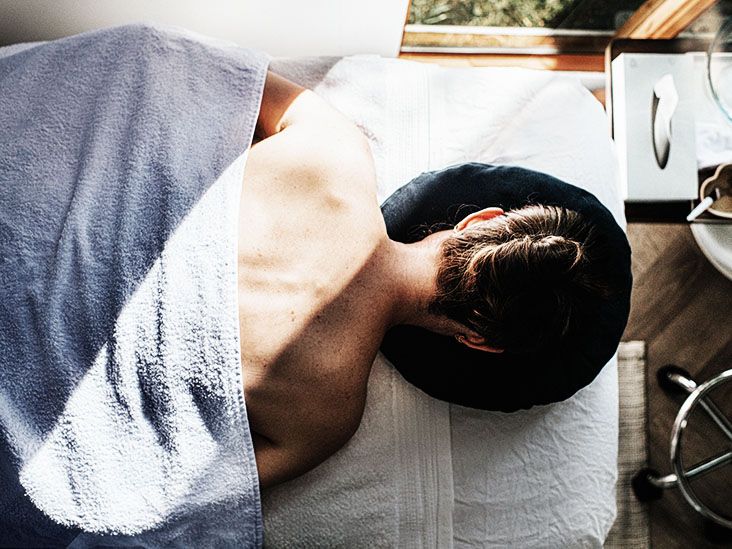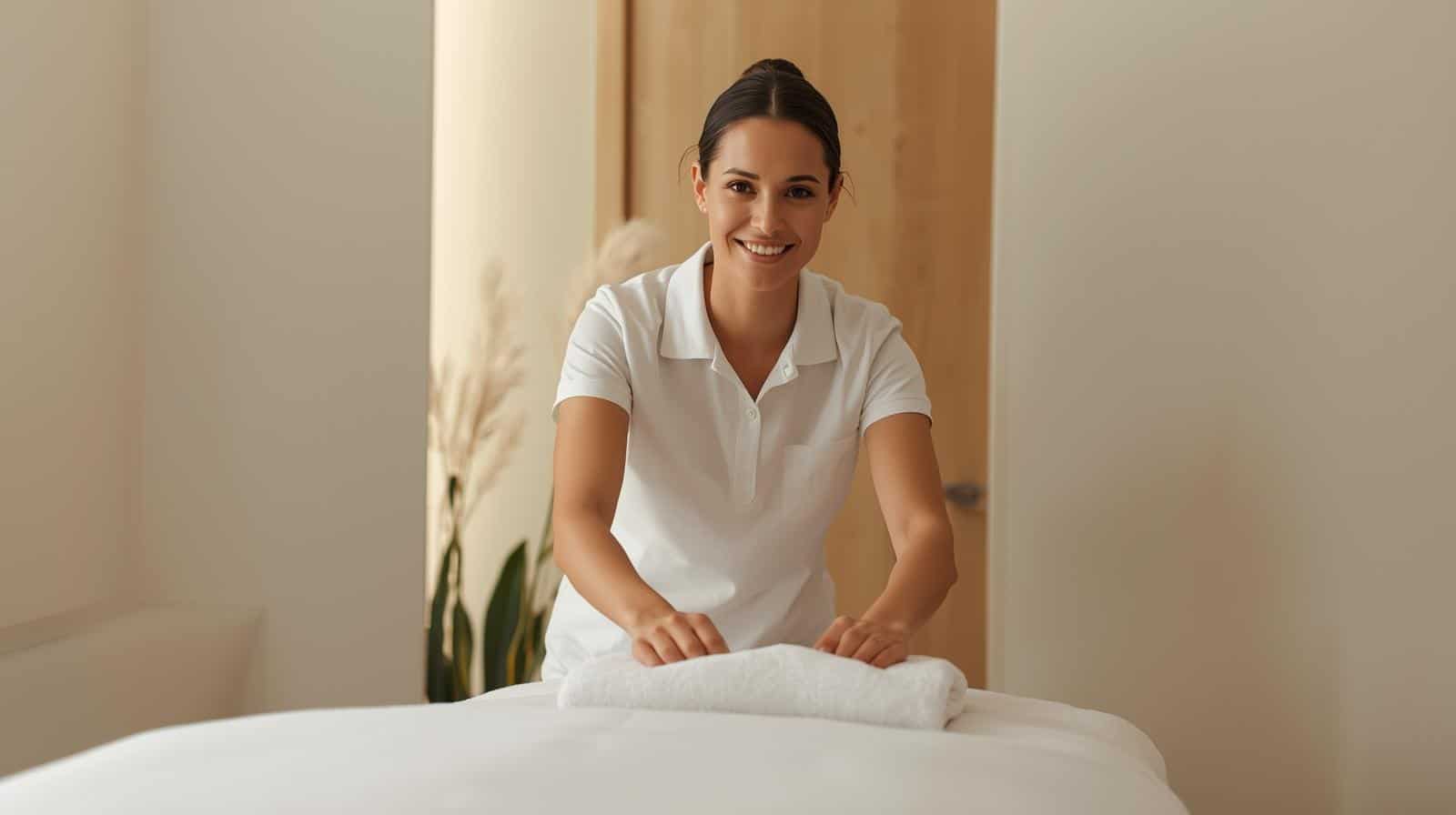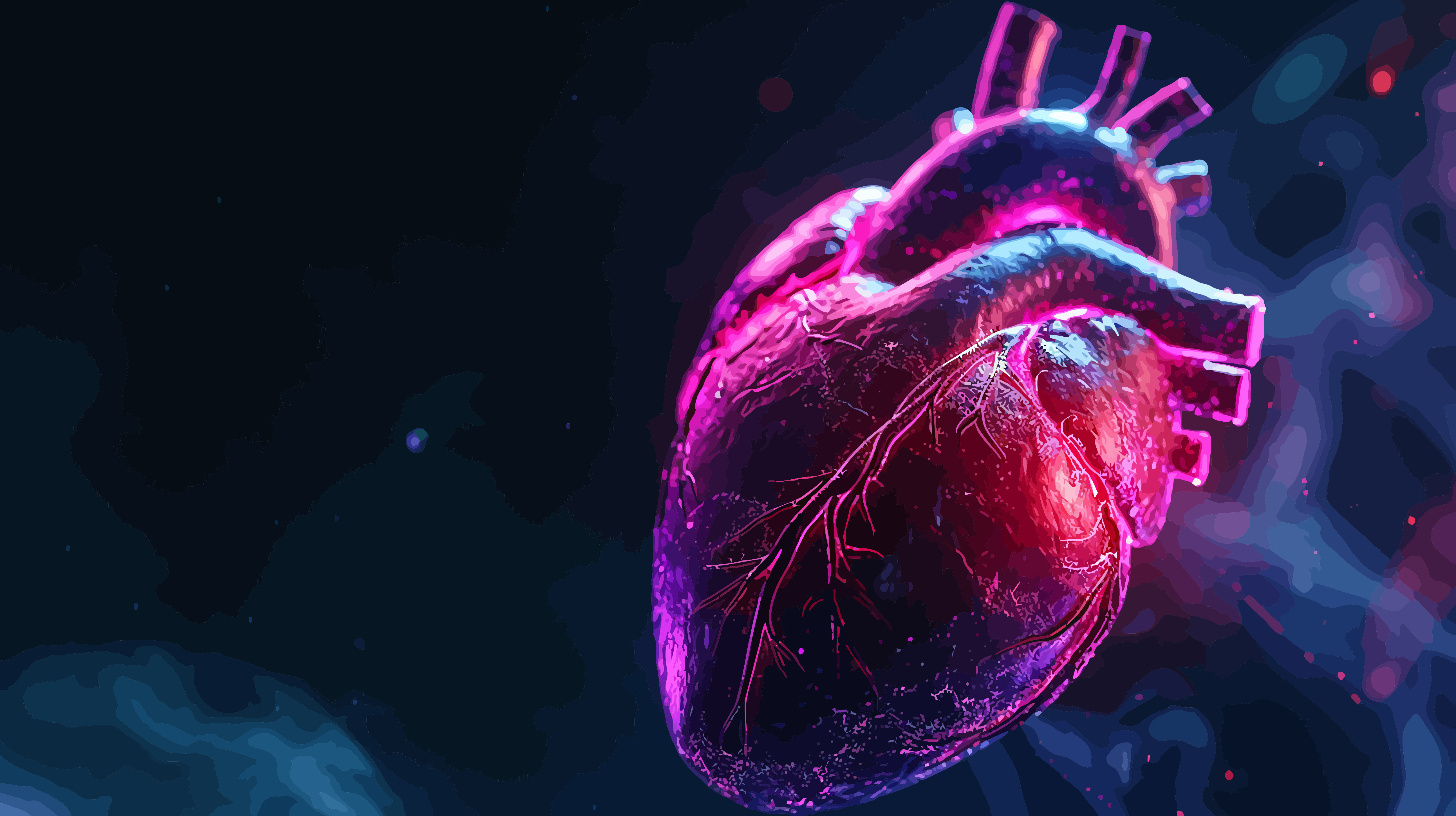Why they happen and what to do

Massage aims to relieve tension and loosen muscles, but a potential side effect for some people is a headache. Several factors might contribute to this.
A
Massage has a low risk of harmful effects. However, some people may experience headaches following a massage. These may be tension headaches, as these are the most common type of headaches.
This article examines the most likely causes of headaches after a massage, symptoms, treatments, preventive measures, and frequently asked questions.
There are a variety of reasons why a headache may develop following a massage. Some may result from the type of massage, but external factors can also cause headaches.
- Dehydration: People may experience dehydration headaches after a massage.
- Too much pressure: If the massage therapist uses too much pressure, a person’s blood circulation will increase. This can cause a pressure headache.
- Sensitivity to smell: Massage therapists may use oils and perfumes with strong scents. According to the American Migraine Foundation (AMF), some strong smells can trigger or worsen migraine headaches.
- Allergies: A person may be allergic to the oils used during a massage. Allergies have associations with sinus headaches and migraines. If a person experiences symptoms of allergies, they may wish to contact a doctor.
- Blood pressure changes (postural hypotension): When rising from a flat position, the difference in blood pressure may not specifically cause a headache, but it could cause dizziness, lightheadedness, and pain across the shoulders and neck, among other symptoms.
A headache after a massage may be a dull, achy pain in the head, with muscle tenderness in the scalp, neck, or shoulders. These symptoms are common in tension headaches.
If the smell of oils has triggered a migraine, a person may experience moderate to severe pain, dizziness, and sensitivity to light, among other symptoms.
According to the United Kingdom’s National Health Service (NHS), if a person experiences postural hypotension after a massage, they may experience dizziness, weakness, fatigue, and pain in the neck and shoulders.
The best treatment for headaches after massage therapy may depend on the other symptoms a person has.
If dizziness accompanies the headache after a massage, a person may benefit from resting for a short while following the massage until the dizziness passes.
The AMF recommends a combination of over-the-counter (OTC) pain relief, rest, and drinking water to combat headaches. A person may benefit from this treatment if factors including tension, dehydration, or overpowering smells cause their headache.
Applying a cold compress to the forehead and massaging the temples may also relieve pain in the head after a massage.
A person can take several steps in advance to reduce their risk of experiencing a headache after massage, including:
- telling the massage therapist about any medical conditions that could cause headaches
- avoiding drinking alcohol before and after the massage
- speaking with the massage therapist before the massage to establish expectations and pressure of the massage
- drinking lots of water before and after the massage to stay hydrated
- asking the masseuse to use unscented oils and to avoid perfumes in the room
Below are some frequently asked questions about massage and headaches.
How long does a headache last after a deep tissue massage?
The length of a headache after a deep tissue massage may vary depending on the type of headache a person experiences.
For example, tension headaches typically do not last long, but some last longer. On average, they last about 30 minutes to a week.
If a massage has triggered a migraine, this can last from a few hours to days.
How do you get rid of a headache from a massage?
People can treat these headaches with good hydration and OTC pain relievers, such as aspirin, ibuprofen, and naproxen.
A person can also try applying a cold compress to the forehead and massaging the temples.
Some people may experience headaches after a massage. It can result from dehydration, sensitivity to scents or environmental factors, muscle tension, or blood pressure changes.
This headache usually presents as a dull, achy pain with possible muscle tenderness in the shoulders, neck, or scalp.
Treatments for headaches after a massage may include getting rest, drinking water, using ice packs, massaging the temples, applying a cold compress to the forehead, and using OTC medications — including nonsteroidal anti-inflammatory drugs.
link






